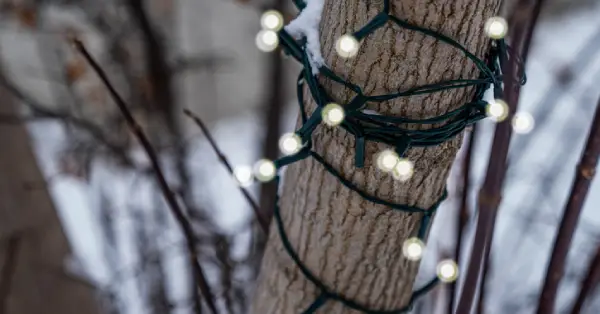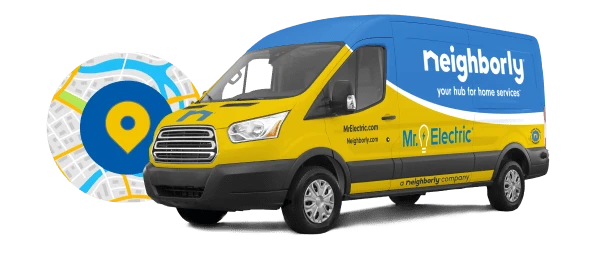
Mr. Electric explains the benefits and considerations of investing in solar Christmas lights.
|
Excited about festooning your house with outdoor Christmas lights this year, but worried about the cost? If all those extra lights are driving up your electric bill, consider more energy-efficient options. Solar outdoor holiday lights can be a great solution for savvy holiday decorators. Keep reading to learn all about eco-friendly options before you take the plunge. Once you’ve settled on the best type of outdoor Christmas lighting for your lifestyle, Mr. Electric can help you design a home light display that will be the envy of the neighborhood!
How Do Solar Christmas Lights Work?
Solar Christmas lights are attached to a dark panel—called a solar cell—that converts the sun’s rays into electrical current. The newly converted electricity is then stored in a battery until it’s needed. Solar lights charge off sunlight all day. In the evening, a photoreceptor senses when it’s dark outside and will turn on the light. The light (usually an LED) will remain on until the battery is empty or the photoreceptor senses light again.
Many string lights available at your local hardware store operate with small batteries and only carry enough charge for one night. Solar batteries typically last about two years before needing replacement.
Types of Solar Holiday Lights
Most solar Christmas lights use LED bulbs instead of incandescent bulbs. LED bulbs are more energy efficient than incandescent options, although they are less bright than incandescent lights.
You can find solar versions of all your usual outdoor holiday lighting! Choose from traditional string lights, fairy lights, copper wire string lights, and icicle lights. Your local hardware stores will carry solar Christmas lights in a variety of colors.
When Do Solar Outdoor Lights Work Best?
Because solar outdoor lights charge off of sunlight, they work best on bright days, especially in the summer when there is plenty of daylight. You may find solar lights work most easily year round in more temperate climates. Most solar lights need between four and twelve hours of sunlight to fully charge.
Solar lights may receive less light in the winter or rainy months. Some solar lights struggle to fully charge in cold weather as well. In general, solar lights may not be right for you if you live in a very snowy, cold area with little sunlight.
Where to Hang Solar Holiday Lights
Since solar holiday lights don’t require extension cords, you have total flexibility when deciding where to install them. However, solar outdoor lights work best when the charging panel is placed in a sunny spot. If you live in a snowy area, make sure your solar panels aren’t covered in snow so they can charge properly.
Be sure to hang your lights safely and check them for any frayed wires. Hang outdoor lights on insulated hooks and avoid placing hot lights on dry trees.
Why Choose Solar Christmas Lights?
There are two major reasons for choosing solar outdoor holiday lighting:
- Saving money. Although the upfront costs of solar holiday lights are higher than traditional string lights, you will save money long term on your energy bills. And if you only use the solar lights during the holidays, they should last a long time.
- Reducing your carbon footprint. Solar lights with LED bulbs use less energy, produce less heat, charge more rapidly, and last longer than incandescent bulbs. Solar power provides safe renewable energy that reduces carbon emissions.
About to blow a fuse over holiday lighting stress? No problem! Call Mr. Electric’s team of licensed and experienced electricians or schedule an appointment online.

